Waste & Recycling
Construction is one of the largest users of materials and creators of waste streams.
Government waste statistics reveal almost 55 million tonnes of non-hazardous construction and demolition waste was generated in the UK in 2014, with 49.4 million tonnes recovered, representing a recovery rate of 89.9%. However, much of this was downcycling, often crushing waste for use in roads or buildings foundations. With millions of tonnes of construction waste still being sent to landfill, the imperative is for construction to embrace circular economy principles – maintaining the value of materials and access to them for continual and future use. Learn more in the government and Green Construction Board’s review of Circular Economy Thinking in Construction.
Company level
Principal means of evidence reporting by manufacturers
ISO 14001:2015 provides a framework for companies and organisations, regardless of activity or sector, seeking to set up an effective environmental management system.
The ISO 14000 family of standards is developed by the ISO Technical Committee ISO/TC 207 and its various sub-committees.
BRE's BES 6001 is a certification scheme for the responsible sourcing of construction products. To a degree a hybrid between product and company-level certification, it sets out requirements within three key areas:
- Organisational management
- Supply chain management
- Environmental and social issues
The scheme focuses primarily on material traceability through supply chains and the assessment of greenhouse gas emissions and energy use.
A BES certification amongst responsible sourcing certifications may boost material credits within BRE’s BREAM Building Rating Scheme.
Secondary means of evidence reporting by manufacturers
GRI sustainability reporting provides information on an organisation’s critical impact on the environment, society and economy. The environmental category encompasses impacts relating to inputs (eg energy and water) and outputs (eg emissions, effluents, waste.) It also takes in biodiversity, transport, product and service-related impacts, together with environmental compliances and expenditures.
G4 includes GRI 306: Effluents and Waste which sets out reporting requirements. This standard can be used by organisations of all sizes, across all sectors and geographical locations.
GRI reporting is not commonly used by UK-based construction product manufacturers.
Carbon Trust Standard for Zero Waste to Landfill recognises organisations’ efforts in reducing environmental impact, by diverting waste streams from landfill through reuse, recycling or recovery.
The standard is more commonly adopted by construction contractors and sub-contractors than construction product manufacturers.
Product level
Principal means of evidence reporting by manufacturers
The environmental impact of construction product manufacture is measured by Life Cycle Assessment (LCA). The methodology for measuring environmental impacts has become a European standard - EN 15804 the outcome of which is an Environmental Product Declaration (EPD).
The EPD measures a range of impacts. Those relating to waste and recycling are:
- Components for re-use (kg)
- Materials for recycling (kg)
- Non-hazardous waste disposed (kg)
- Hazardous waste disposed (kg)
- Radioactive waste disposed (kg)
Products that have an EPD can be found at:
- http://www.eco-platform.org/list-of-all-eco-epd.html
- http://www.environdec.com/
- http://www.greenbooklive.com/search/scheme.jsp?id=260
The Standard is available to purchase from BSI.
BRE's BES 6001 is a certification scheme for the responsible sourcing of construction products. To a degree a hybrid between product and company-level certification, it sets out requirements within three key areas:
The scheme sets out requirements under 3 main headings:
- Organisational management
- Supply chain management
- Environmental and social issues
The scheme focuses primarily on material traceability through supply chains and the assessment of greenhouse gas emissions and energy use.
A BES certification amongst responsible sourcing certifications may boost material credits within BRE’s BREAM Building Rating Scheme.
Secondary means of evidence reporting by manufacturers
ISO 21930:2007 is the international standard for measuring the environmental impact of building products and producing their respective Environmental Declarations for them.
The standard includes a number of indicators relating to waste, reuse, recycling and waste disposal.
It evolves in tandem with the European Standard EN 15804.
The Cradle to Cradle CertifiedCM program is a third party, multi-attribute eco-label administered by the Cradle to Cradle Products Innovation Institute that assesses a product's safety to humans and the environment and design for future life cycles.
With traction in retail, the scheme is trying to gain profile in the construction products sector.
Whilst not a certification scheme, the DRID Information Data Sheets issued by the National Federation of Demolition Contractors provide valuable information on the practical waste management of materials and products.
Though not certification schemes, a number of well-established recycling schemes exist. Examples include Recofloor for vinyl floors and the Armstrong scheme for ceiling tiles.



